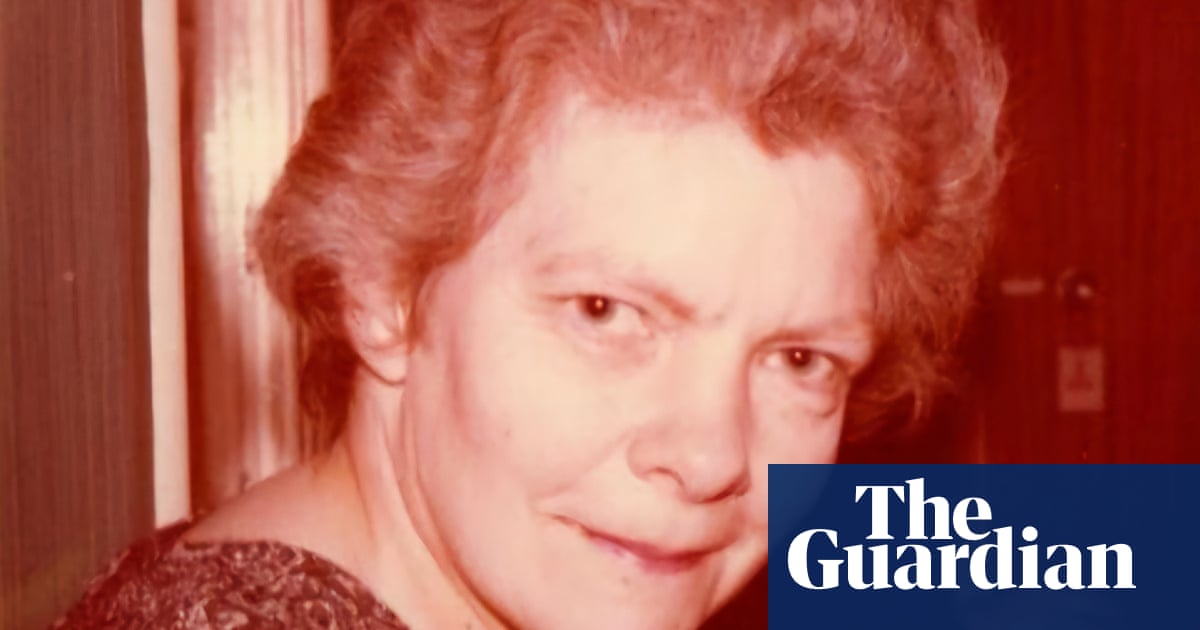My grandmother Eve Thompson, who has died aged 95, was variously a theatre stage manager, a secretary and a nursery nurse – until later in life she became involved in voluntary work and advocacy, particularly in relation to mental health.
After Eve’s son Ben was diagnosed with schizophrenia in the early 1980s, she volunteered for the NationalSchizophreniaFellowship (now Rethink Mental Illness), working with service users, carers and professionals to improve services, establish supported housing and ensure families received the help they needed.
She became its national chair in 1990, a position she held for five years, and was also a trustee. Outspoken about funding shortfalls, in a 1993 article in the Independent newspaper she said: “The size of the cheque is the most important thing. You cannot make bricks without straw. There are simply not the cash resources available for what needs to be done.”
Eve was born inBirminghamto Ernest Salt, a chartered accountant, and his wife Joan (nee Morgan). She attended Edgbaston high school for girls until, during the second world war, the family moved to Northamptonshire and then Stratford-upon-Avon, where she went to Leamington high school for girls. At 15 she joined the Birmingham repertory theatre school, and the following year travelled to Charleston, South Carolina, on a theatre scholarship.
Later she worked as a stage manager for repertory theatre companies in Yorkshire and the south-west of England, until in 1950 she decided the theatrical life was not for her.
Moving to London in the early 50s, she completed a course at St Godric’s secretarial college in Hampstead, north London, before taking on various secretarial jobs, including as secretary to the political cartoonist Vicky (Victor Weisz). After marrying John Thompson, a civil servant, in 1954, she concentrated on raising their young family – they had three children, Katy, Jenny and Ben.
In the early 70s, despairing of finding a nursery place for Ben, who had additional needs,Eve trained to be a nursery nurse at Barnet College in north London, after which she worked for a number of years in a nursery for children with learning difficulties run by the Westminster Society. When she and John moved back to Stratford-upon-Avon in 1981 she retired.
For many years Eve and John had been functioning alcoholics. Matters came to a head in the mid-80s when Eve was hospitalised and then treated at the Woodleigh Beeches alcohol and substance abuse unit, which she credited with saving her life.
Afterwards both she and John remained sober for the rest of their lives. They also became active in Alcoholics Anonymous, supporting others in recovery with practical advice and compassion that drew on their own experiences.
Known for her intelligence, dry wit and determination, Eve retained deep commitments to family and mental health advocacy, as well as a lasting love of the theatre.
John died in 2007 and Ben died in 2016. Eve is survived by her two daughters, four grandchildren and seven great-grandchildren.
